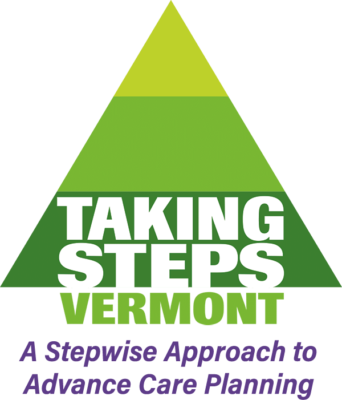
Health Care Decisions
Begin the conversation and start taking steps today.

It is impossible to predict the exact health situation you might be in and what treatments will be available to you at that time. Discussions with those closest to you about your goals and values can help to guide "in the moment" decisions that may need to be made and will allow you to maintain as much control over your health care as possible.
What is Advance Care Planning?
Advance care planning (ACP) is a process to help a person, in advance of injury, serious illness or catastrophic event, think about and plan for future medical decisions at a time when they are unable to speak for themselves.
How Do I Begin?
Talk to your family, friends, and health care providers about what matters most to you. Discussions about your goals and values can help to guide the "in the moment" decisions that may need to be made and will allow you to maintain as much control over your health care as possible.
Ready to Take Steps?
Advance directives are legal documents that are signed and witnessed that speak about your future wishes and preferences for treatment. Documenting your decisions on an appropriate form provides guidance to those who may need to make decisions for you.
Who's Your Person? What's Your Plan?
Regional Support and Resources for Individuals and Businesses
Access one-on-one support in your region for completion of advance directives or resources for businesses seeking to provide advance care planning education to their employees.
Learn MoreMore Topics in Medical Decision-Making
Psychiatric Advance Directives
While there is no special advance directive for psychiatric care in Vermont, individuals living with mental illness can complete legal documents to specify their preferences and priorities for future mental health treatments in advance of a health crisis.
Learn More »Considerations for Individuals with Dementia or Alzheimer's
There is no known cure for dementia or Alzheimer's. As these diseases progress, you will lose the ability to make decisions and care for yourself. Providing guidance about what you would want can help you feel more secure.
Learn More »Pediatric Decision-Making
Parents are presumed to be the appropriate decision makers for their children under 18 years of age. Children under 18 cannot complete advance directives and medical decisions for them are usually based on what the parents believe is in their child's best interest.
Guidance for Parents & Decision-Makers »Making Medical Decisions for Someone Else
Making medical decisions for someone else can be a big responsibility, but it can also be an important way to help someone you care about. If you're called upon to serve in this role, there is help available.
Guidance for Decision Makers »Adult Guardianship
If an adult is not able to manage their personal care or financial affairs, a guardian may be appointed to promote their well-being and protect their rights. The powers of a guardian can be total or limited to the needs of the individual.
Learn More About Guardianship »Organ Donation
Every day, people die while awaiting organ transplants because there is a shortage of donated organs and tissues. Organ donation will not happen until all efforts to save your life have been exhausted and death has been determined.
More Information About Organ Donation »